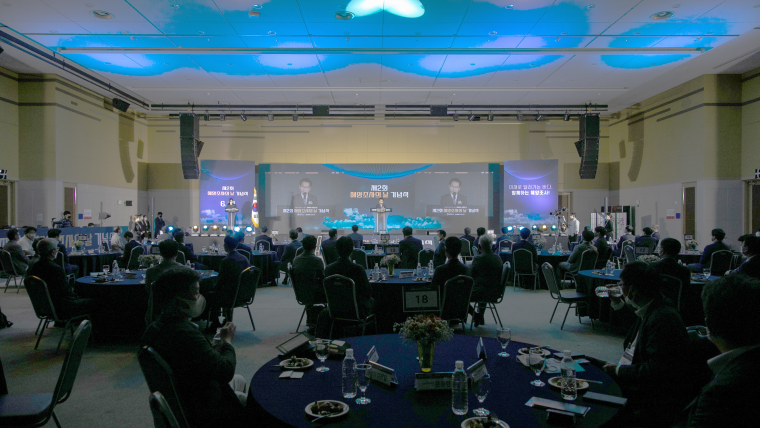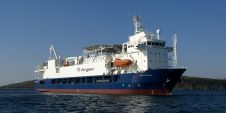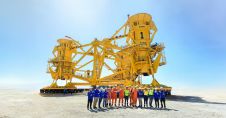A Journey of Awareness and Practices in Hydrography in Korea
As Korea officially commemorates Hydrography Day, the Hydrographic Society of Korea (HySK) has acted as a link between industry, academia and research for the past ten years. The Republic of Korea has moved from a technology beneficiary country to become a technology leader through intensive national investment, industry efforts, and legal and institutional improvement. As a member of the International Hydrographic Organization (IHO), Korea generously shares information and communication technology capabilities and supports the education and activities of domestic and foreign experts.
Hydrographic Society of Korea Officially Commemorates Hydrography Day
Besides the professional journal the International Hydrographic Review, published by the IHO, magazines and journals dealing with hydrographic surveys are highly limited in Korea, although partly addressed in publications on oceanography, civil engineering and geospatial sciences. There is also no specialized hydrography department in Korea, but HySK celebrated its tenth anniversary on 21 and 22 June 2022. With about 250 members, this society has been publishing journals twice a year for the past ten years with the participation of professors and research institutes and industry experts in hydrography and has offered various international seminars and exchanges in technical information. HySK has provided a platform for industry-university-research cooperation, has served as a channel to develop a legal and institutional basis and acts as a think tank. Another association, the Korean Hydrography and Research Association (KHRA), also intends to publish an article once a year to communicate with and cultivate the goodwill of the International Hydrographic Review’s subscribers around the world.
In 2005, the United Nations designated 21 June as World Hydrography Day to promote the importance of ocean surveys. The Republic of Korea commemorates this as of 2021 by officially designating the same date as ‘Hydrography Day’. However, while information obtained through marine surveys is important for safety at sea and ensuring maritime sovereignty, it is less well-known among the general public. In other words, even though it is celebrated as an important day at the national level, it is not generally recognized as such.
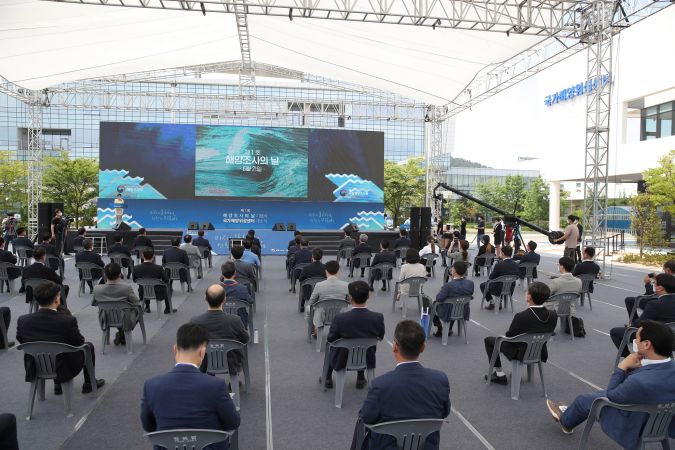
Hydrographic Surveying Important to the Korean Government
Hydrographic surveying is important to the Korean government for several reasons. First, while Korea is a peninsular in terms of physical geography, it is in fact an island for political and economic purposes. It is an export-based economy, making maritime safety a high priority in its harbours and along its navigation routes. As the country with the largest number of orders in the shipbuilding industry in 2022 and ranking tenth in world trade, leaders in Korea believe that maritime surveys are critical. Second, hydrographic survey data is also critical for national defence. Third, Korea has experience in exporting artificial satellite technologies, and its ocean surveying as marine information goes beyond the level of charting. For example, the Ministry of Oceans and Fisheries systematically manages various forms of information generated in the ocean and applies AI technologies to achieve a digital twin of the ocean.
From Technology Recipient to Leader in Hydrographic Technologies
The Korea Hydrographic and Oceanographic Agency (KHOA), which oversees hydrographic surveys, celebrated its 70th anniversary in 2019. Despite the devastating economic environment after the Korean War, the government actively applied innovative technologies in the field of hydrographic surveying. The agency started the National Base Map Project in the mid-1990s and adopted multibeam technologies, and Korea recently launched the world’s first geostationary orbit satellite dedicated to the ocean and operates the GeoKompsat-2B satellite. The Republic of Korea has transformed from a beneficiary nation to a leader in knowledge transfer, based on its experience in developing an industry without any background and aggressive investment in innovative technology. This can serve as a good example for other developing countries, whether IHO members or not, who will be able to go through the same process with less trial and error.
Like Malaysia (2011) and Turkey (2016), in 2021 Korea revised its hydrographic surveying act, which had been in place since 1970. This new act enabled the KHOA to respond to requests for national R&D projects, such as the installation and operation of three-dimensional seawater flow observation equipment, including real-time observation of the ocean and the establishment of a mobile observation platform, and technology development based on S-100.
Conclusion
In the field of hydrographic technology, Korea has developed industry-university-research cooperation with a legal and institutional basis to meet internal and external political and economic demands. It has also passed the period of receiving assistance from developed countries, as shown by the overall picture on hydrographic technologies, from the far sky to the seabed, and cooperation with the IHO.
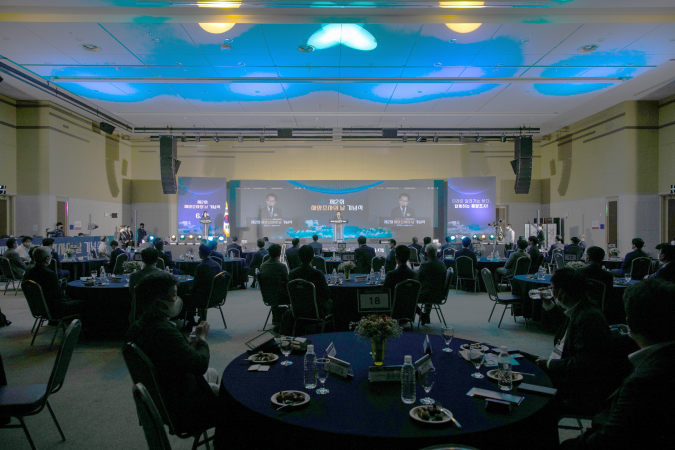
Bibliography
http://extwprlegs1.fao.org/docs/pdf/tur165685.pdf
https://pejuta.com.my/wp-content/uploads/2013/01/Hydrography%20Act%202011.pdf

Value staying current with hydrography?
Stay on the map with our expertly curated newsletters.
We provide educational insights, industry updates, and inspiring stories from the world of hydrography to help you learn, grow, and navigate your field with confidence. Don't miss out - subscribe today and ensure you're always informed, educated, and inspired by the latest in hydrographic technology and research.
Choose your newsletter(s)
